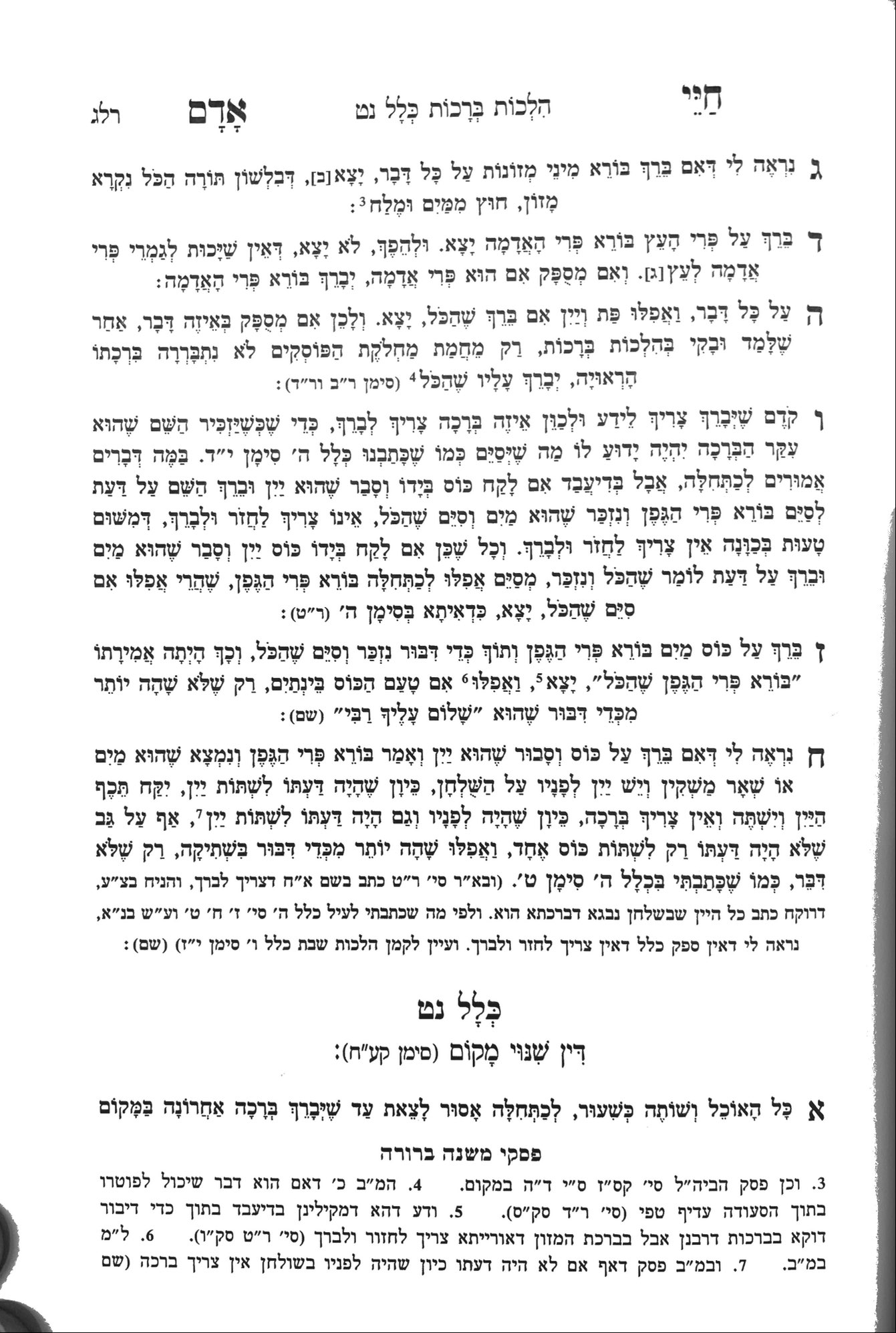We are beginning the halachos of shinui makom. We will begin with an introduction.
There are two separate ideas related to these halachos. The first relates to bracha achrona. When a person finishes a meal, they should not leave the place in which they ate until they make a bracha achrona. This halacha is due both to the practical consideration that one may otherwise forget, and to the halachic consideration that it is most appropriate to recite the bracha achrona in the place in which one ate.
The second idea regards the bracha rishona. If a person makes a bracha rishona and leaves that place, we will learn whether the effectiveness of the bracha rishona extends to the new place, or whether their leaving is considered the end of a session of eating.
This question is based on the premise that a person situated themselves for a session of eating. If the entire session was in a mobile fashion, there was never a specific place for the eating, and there will be a difference in their halacha. Additionally, there may be a difference between foods generally eaten in a stationary fashion versus foods generally eaten while mobile.
Alternatively, we will learn about stationary eating sessions which are so strong that leaving the place does not break it. In certain scenarios, Chazal even required one to return to their original place to recite bracha achrona.
The Rama holds that even when one requires a new bracha rishona for having left their first makom, they will not necessarily require a bracha achrona on that previous makom. The Rambam holds they do require a bracha achrona on the previous makom, to the extent that if they did not make a bracha achrona in their first place, they would make two brachos acharonos in the second place. Although the Shulchan Aruch paskens in accordance with the Rambam, both Sephardim and Ashkenazim follow the opinion of the Rama in this regard.
In siman 1, the Chayei Adam writes that if one eats or drinks an amount which requires a bracha achrona, they should not leave the place in which they are eating until they recite the appropriate bracha achrona, in case they forget to recite it. Similarly, if one finishes eating, they should train themselves to immediately recite the bracha achrona, because it is probable they will forget.
The Mishnah Berurah discusses delaying a bracha achrona in order to perform a mitzvah, and concludes that it is muttar. That being said, if there is a strong concern one may forget, one will end up gaining the mitzvah that came their way but lose the mitzvah of reciting the bracha achrona, so they end up trading one mitzvah for another. In such a case, one should wait to perform the mitzvah that came up until after they recite bracha achrona.
This siman, and the related Mishnah Berurah, are not discussing changing ones place per se, but rather best practices to avoid the issue.
Summary
- One should train themselves to immediately recite a bracha achrona in order to avoid an issue of a shinui makom.
- One may delay a bracha achrona in order to perform a mitzvah, but if there is a concern that they will forget to recite the bracha achrona, they should not delay, even for a mitzvah.



